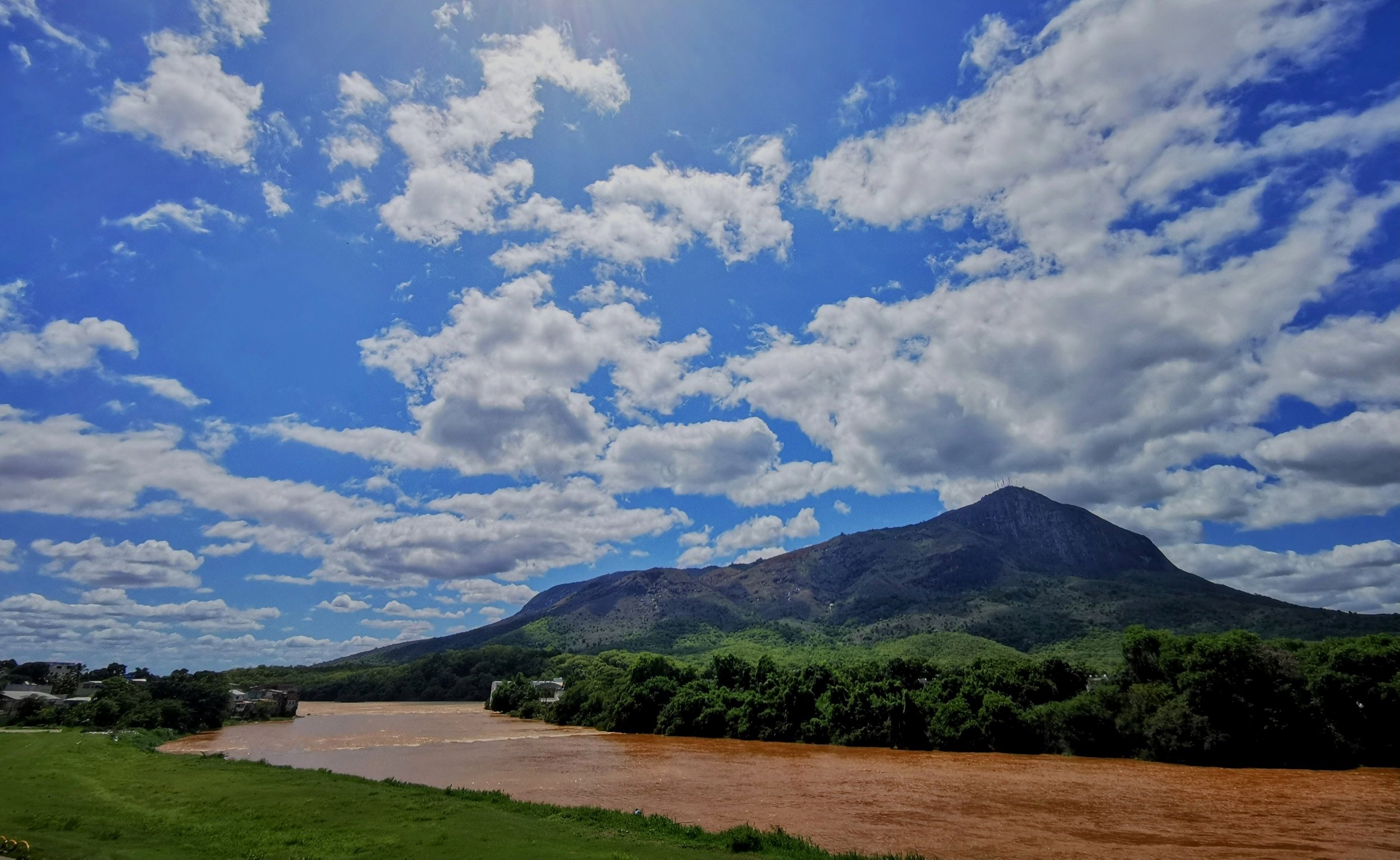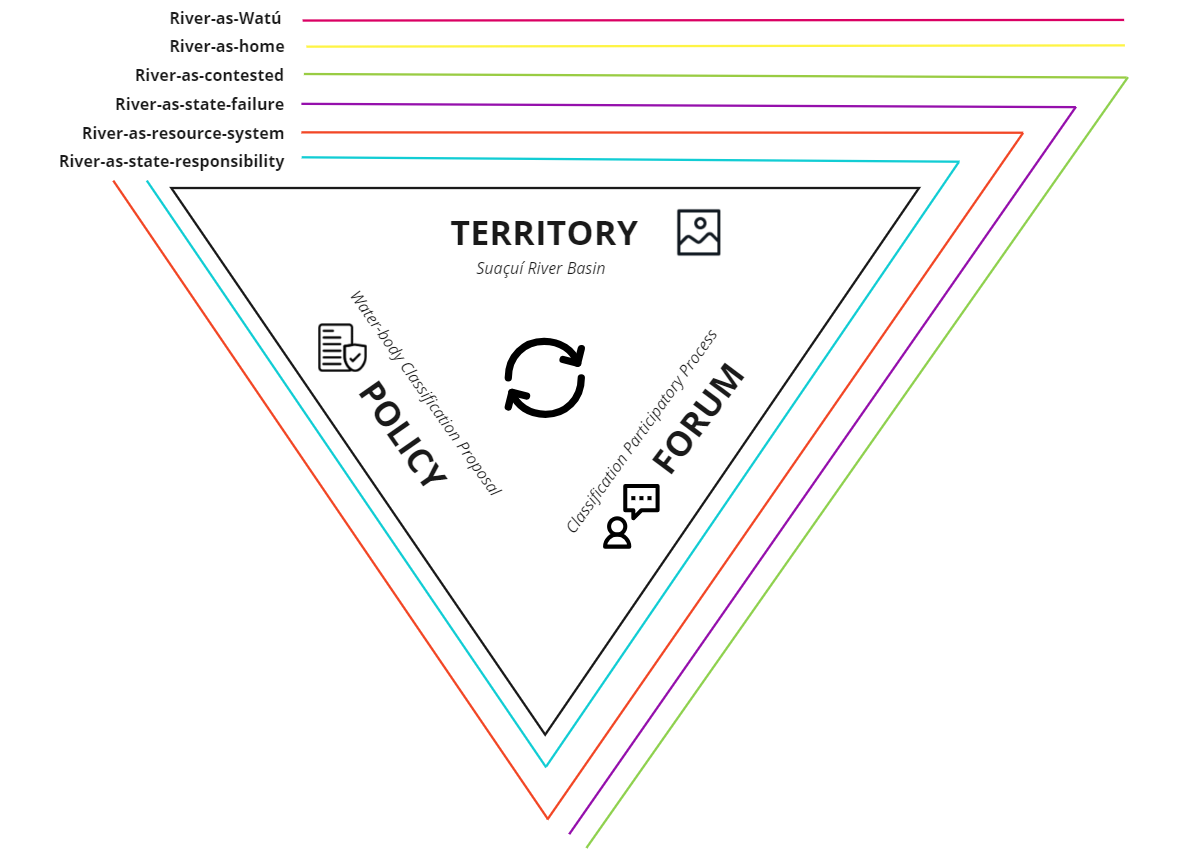
It matters what matters we use to think other matters with; it matters what stories we tell to tell other stories with; it matters what knots knot knots, what thoughts think thoughts, what descriptions describe descriptions, what ties tie ties. It matters what stories make worlds, what worlds make stories.
- Donna J. Haraway, Staying with the Trouble: Making Kin in the Chthulucene
Rivers Across Worlds: examining and innovating participatory environmental governance
-

Dam the River
Historical Analysis—As summarised in an article in Environmental Science & Policy, Brazilian participatory water governance represents a substantial advance on prior governance regimes. As with global water management paradigms, however, it continues to enact ontological exclusion: the river as the living ancestor of the Krenak, Watú, did not find a place in river-basin planning prior to the 2015 Samarco Disaster, which uneashed 60 milin tons of mining waste over 600 km of the Doce River.
-
Rivers Across Worlds
Case Study—Following a state-led participatory process for water-quality classification in the Doce River, I carried out fieldwork, interviews, and participant observation to understand how participation is being performed. Developing an original theoretical framework made the inclusion and exclusion of river ontologies visible over a policy cycle. The relational ontologies of river-as-home of riverine communities, and river-as-Watú of the Indigenous Krenak are excluded from participatory processes and management (article accepted in Environment and Planning E: Nature and Space)
-
Going Upstream
Proposition—the conceptual framework is expanded to examine the specific modes through which ontologies are included and excluded in participatory water governance. This grounds a speculative design process resulting in a pluri ontological database proposition. Through opening up to diverse characterisations of river relationships and linking these to specified definitions of quality and quality evaluation, a more inclusive and sustainable approach may be formed. This research was defended as part of my PhD, awarded without revisions in 2023 (article published Ecosystems & People).

